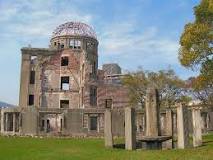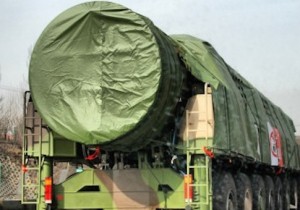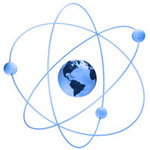
Today marks the 69th year since the atomic bombing of Hiroshima. The wisdom of the bombing will likely be debated for centuries to come. This yearʻs commemorative ceremony will be attended by US Ambassador Caroline Kennedy, according to The Japan Times.
 How likely is such a horrific event to occur again, for whatever reason? I occasionally check the “Doomsday Clock” created by the Bulletin of Atomic Scientists. It is still standing at 5 minutes to midnight. The clock hit the 3 minute mark in 1984 at the height of the Cold War. It dropped back to 17 minutes in 1991 when the Cold War thawed.
How likely is such a horrific event to occur again, for whatever reason? I occasionally check the “Doomsday Clock” created by the Bulletin of Atomic Scientists. It is still standing at 5 minutes to midnight. The clock hit the 3 minute mark in 1984 at the height of the Cold War. It dropped back to 17 minutes in 1991 when the Cold War thawed.
Are we entering a new Cold War? Are the risks of nuclear war, deliberate or accidental, increasing or decreasing? There are troublesome events on the horizon.
The NY Times reports that a critical accord on nuclear cooperation between Russia and the USA has fallen apart over the Ukraine crisis. The Washington Free Beacon reports that China is deploying a next generation ICBM, the DF-41, which can hit the United States (or Japan) with multiple warheads.

Perhaps more disturbing is the saber rattling from North Korea, where a “high ranking military official” has threatened to strike the White House and other targets with nuclear weapons. More on this at Voice of America. Even if the ability to deliver their nuclear weapons to those targets is not there, it points to the possibility of unstable governments using nuclear devices to retain power or settle grudges.
A recent United Nations meeting on nuclear terrorism looked at whether the Fukushima Daiichi events could provide a blueprint for terrorists seeking to “inflict mass destruction.” More on that conference at Bloomberg. And what about the safety of the 15 nuclear reactors in the Ukraine? Are we taking government stability into account as the nuclear industry expands into Southeast Asia, South America, and Africa?
In another unstable region, Hamas recently fired rockets targeted to hit Israelʻs Dimona Nuclear Reactor according to the NY Post and the Jerusalem Post.
What can we do to reduce the risk of nuclear war or nuclear terrorism? Skillful diplomacy, sane public policy, planning, cooperation, trust building between nations, friendships across borders, goodwill, social justice, verification tools – all these come to mind as possible stepping stones towards a world where nuclear weapons will not be used again.
The people at nuclearrisk.org have some ideas on how to get everyone involved in defusing the nuclear threat. Itʻs something worth looking at. See their website Defusing the Nuclear Threat.
On this Anniversary of Hiroshima I pause to reflect on the lives lost – on all sides of the conflict that precipitated the bombings of Hiroshima and Nagasaki. My sympathy is particularly strong for the innocent children and families who were not involved in the conflict. Their deaths and suffering speak to indiscriminate nature of nuclear weapons. Precision strikes are not possible, and fallout poisons the atmosphere on a global scale. Today I ask myself how can human beings learn to get along and work together – so that nuclear weapons are never used again. None of us want to think about this, and thatʻs why nuclear war is often described as “unthinkable.” But if leaders, governments, analysts donʻt consider the possibility, it will be hard to prevent the unthinkable from happening again.
